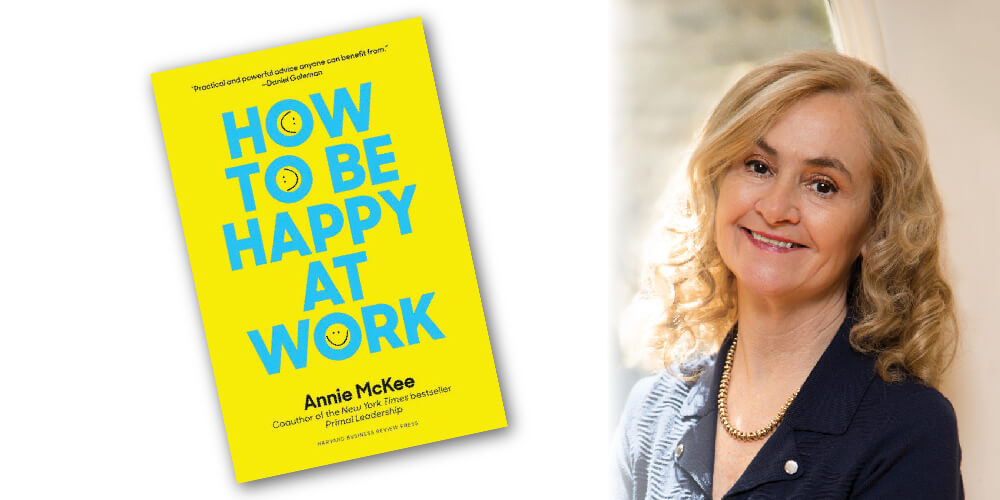Annie McKee, Ph.D., has always been passionate about experiences in the workplace.
By Maureen Thielemans
But early on in her career, and throughout graduate school, she started to wonder why peoples’ passion for work was high, yet their happiness at work was low. So she spent years studying leadership and management theories, helping people develop their emotional intelligence and learning how to work better together. (Hint: relationships play a big role.)
On Sunday, July 22, McKee will share more of her insights with attendees during the Opening General Session at Pharmacy Education 2018. But first, she spoke with AACP about finding balance, fulfillment and ultimately happiness in our working lives.
AACP: What’s one thing people could start doing today to improve their happiness at work?
McKee: We have to take responsibility for our own happiness. That means not giving in to the temptation to blame others, whether that’s a boss, a colleague or a culture that’s not great. Step #1 is to say, “It’s not perfect, but what can I do?” Step #2 is to take time out for reflection and consider, “What is it about my work that I actually feel good about?” Most of us can find something. Then try to see if you can emphasize some of those aspects of work.
AACP: Is there anything Annual Meeting attendees might be surprised to hear during your keynote?
McKee: We often put ourselves in a box that’s really small when it comes to how much freedom we have in the workplace, but we usually have a lot more freedom to make changes than we think we do. We can make changes of all sorts, often in very practical ways: how we spend our time, who we talk to, and choosing to be optimistic rather than pessimistic are great things to try.
People are also surprised, and relieved, to hear that despite what we’ve all heard, “You can’t be friends with people at work,” well, you actually can and should be close to the people you work with. You don’t have to go on vacation with them, or even go out to dinner, but you do need trust, warmth, laughter and fun.
AACP: How do you incorporate happiness strategies into your own work life?
McKee: One of the things I write about is “happiness traps” and one of the most dangerous is the overwork trap. This is exactly what it sounds like: Just. Working. Too. Much. For those of us who love our work this is an insidious, even seductive trap. We find ourselves, for all the right reasons, putting aside other aspects of life for the job—to the extent that we start to feel pressure and burnout. I really struggle with that, not only because I love my work but because I have a lot of pressures in my job and it’s very easy to find myself slipping down that proverbial slope. I have to be very mindful to do the things I love and be with the people I care about.
AACP: What advice would you give your younger self?
McKee: Be brave…sooner. And do what you love. I got there, but it took me longer than it should have.
Maureen Thielemans is director of communications
at AACP and editor of Academic Pharmacy Now.

